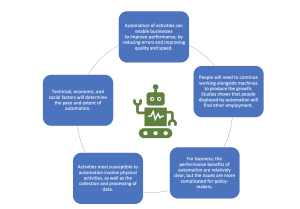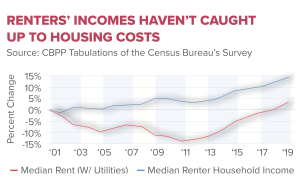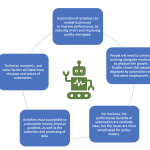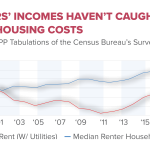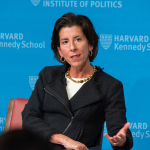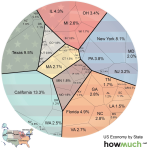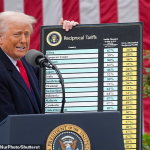Stefanie Stantcheva, an esteemed economist at Harvard, has recently been honored with the prestigious John Bates Clark Medal, an accolade that recognizes excellence in economics for individuals under 40. Known for her groundbreaking tax policy insights, Stantcheva’s work has had a profound impact on understanding economic behavior and the dynamics of economic innovation. During a celebratory gathering at Harvard, she expressed her gratitude for the award, highlighting the importance of well-designed tax systems in fostering or stifling innovation. Her research, particularly the influential study on taxation and innovation, demonstrates the crucial links between tax policy and economic outcomes. With her leadership at the Social Economics Lab, Stantcheva continues to explore pressing economic issues, paving the way for future advancements in public finance and policy.
The recognition of Stefanie Stantcheva’s contributions to the economic landscape speaks volumes about her influence in the realm of public finance and innovation. This accolade not only highlights her work but also showcases the significant role of economists in shaping policy discussions around taxation, trade, and social mobility. As a forward-thinking leader at Harvard’s Social Economics Lab, she is passionate about investigating the complexities of economic behavior and the subtle intricacies of how people engage with economic policies. The insights derived from her research are instrumental in understanding the broader implications of tax systems on economic vitality. Through her inventive approach, Stantcheva champions a new generation of economic inquiry, aiming to elevate the conversation on sustainability and growth in the modern economy.
Stefanie Stantcheva: A Beacon of Economic Insight
Stefanie Stantcheva’s recognition as the recipient of the John Bates Clark Medal highlights her exceptional contributions to the field of economics, particularly in tax policy and its ripple effects on economic innovation. As a professor at Harvard, her research delves into understanding the intricate relationship between taxation, economic behavior, and societal advancement. Her findings suggest that tax systems are not just fiscal mechanisms but powerful tools that can significantly influence a nation’s growth trajectory.
By applying a robust analytical framework, Stantcheva and her colleagues reveal how innovation responds to tax changes, showcasing the elasticity of economic behavior in response to policy shifts. This nuanced understanding of tax policy empowers policymakers to craft regulations that can stimulate innovation and economic growth, proving that strategic tax design can foster a more vibrant economy.
The Importance of Tax Policy in Economic Innovation
Tax policy plays a crucial role in shaping economic innovation, acting as a catalyst for investment and entrepreneurship. Stantcheva’s award-winning research emphasizes that a well-designed tax system can incentivize innovation, leading to breakthroughs that have far-reaching societal impacts. Conversely, poorly structured taxes can stifle creativity and discourage businesses from pursuing new ideas, underscoring the necessity for thoughtful economic policy.
As economies face challenges such as climate change and global competition, understanding the relationship between taxation and innovation becomes even more vital. Stantcheva’s work not only enriches economic theory but also provides practical policy insights that can guide governments in fostering environments conducive to innovation and sustainable growth.
Celebrating Young Economists: The Impact of the Clark Medal
The John Bates Clark Medal serves as a prestigious recognition of emerging economic leaders contributing significantly to the discipline before the age of 40. This accolade not only highlights individual achievements, such as those of Stefanie Stantcheva, but also shines a light on the evolving landscape of economic thought. Awardees are often recognized for their groundbreaking research that shapes future economic policies and inspires a new generation of economists.
Stantcheva’s receipt of the medal signifies her vital role in addressing pressing issues like tax policy and its implications for economic behavior. This recognition brings attention to the importance of supporting young economists whose insights can lead to impactful changes in economic frameworks and policies, thereby fostering innovation and enhancing public welfare.
Harvard Economics: A Hub of Innovation and Research
Harvard University stands at the forefront of economic research, nurturing intellectual talent that drives significant academic inquiry and policy analysis. The Economics Department, through scholars like Stefanie Stantcheva, continues to produce pioneering research addressing contemporary challenges. The university’s commitment to fostering an environment that encourages innovation helps shape the future of economic thought and practice.
Stantcheva’s establishment of the Social Economics Lab reflects Harvard’s innovative spirit, focusing on understanding how emotional and societal factors intersect with economic policies. This approach broadens the scope of traditional economic analysis, examining not just numbers and theories, but the human elements that drive economic behavior and decision-making, thereby enriching Harvard’s legacy in economic scholarship.
The Role of Social Economics in Understanding Economic Behavior
Social economics plays a pivotal role in comprehending the complexities of human behavior in economic contexts. Stefanie Stantcheva’s work emphasizes the significance of social factors and public perceptions in shaping economic outcomes. Her research extends beyond traditional economic metrics, exploring how emotions and societal beliefs influence individuals’ responses to tax policies and innovation.
By incorporating social dimensions into economic analysis, Stantcheva aims to create a holistic understanding of economic behavior. This approach challenges economists to consider not only quantitative data but also qualitative insights, enabling more effective policy decisions that resonate with the public and foster an inclusive economic environment.
Stefanie Stantcheva and the Future of Tax Policy
As a leading economist in tax policy, Stefanie Stantcheva’s research is particularly relevant as governments worldwide grapple with the need for reform in fiscal strategies. Her recent studies address the complexities of how tax policies can encourage or deter innovation, providing critical insights for policymakers aiming to stimulate economic growth while ensuring fairness in the tax system.
The future of tax policy will require a deep understanding of both economic theory and behavioral insights, an area in which Stantcheva excels. By advocating for research-driven policy changes, she emphasizes the necessity for tax systems that not only generate revenue but also promote sustainable economic innovation and address the challenges of modern economies.
Incorporating Behavioral Economics into Tax Policy
Integrating principles of behavioral economics into tax policy offers profound insights into how individuals and businesses perceive taxes and make economic decisions. Stantcheva’s research highlights the importance of understanding psychological factors in shaping tax compliance, investment decisions, and entrepreneurial activities. Her work underscores that a successful tax system must consider not only the economic implications but also the behavioral responses it evokes.
By understanding the emotional and cognitive biases that influence taxpayer behavior, policymakers can design tax systems that promote compliance and encourage positive economic outcomes. Stantcheva’s exploration of these themes emphasizes the need for a comprehensive approach, blending economic theory with behavioral insights to create tax policies that resonate with citizens and drive innovation.
The Impact of Stantcheva’s Research on Future Economists
Stantcheva’s contributions to the field of economics set a benchmark for aspiring economists, showcasing the importance of blending rigorous research with practical policy applications. Her recognition through the John Bates Clark Medal not only acknowledges her efforts but also inspires young scholars to pursue innovative research that addresses real-world economic challenges. The encouragement of interdisciplinary approaches in economic studies, as demonstrated by her work, fosters a generation of economists ready to tackle the complexities of modern economies.
By continuing to push the boundaries of economic thought, Stantcheva serves as a mentor and role model for young economists. Her focus on crucial issues like tax policy and economic behavior illustrates the essential role that scholarly research plays in shaping effective public policies, highlighting the importance of integrating diverse perspectives into economic discourse.
Understanding the Intersection of Tax Policy and Economic Innovation
The relationship between tax policy and economic innovation is a critical area of investigation in contemporary economics. Stantcheva’s research illuminates how tax incentives can foster a dynamic environment for innovation, promoting investment in new ideas and technologies. Her 2022 paper demonstrates the responsiveness of innovation to tax policy, emphasizing that tax reforms can serve as vital instruments for stimulating economic activity.
As governments seek ways to boost growth, understanding this intersection becomes imperative. Stantcheva’s findings advocate for carefully crafted tax policies that not only support economic development but also enhance competitiveness in a global landscape. By shedding light on this crucial relationship, her work informs a path forward for policymakers looking to harness the power of innovation in driving economic progress.
Frequently Asked Questions
What is the John Bates Clark Medal awarded to Stefanie Stantcheva for?
The John Bates Clark Medal was awarded to Stefanie Stantcheva for her pioneering insights in the field of economics, particularly regarding tax policy, economic behavior, and innovation. This prestigious medal recognizes her significant contributions as an under-40 economist.
How does Stefanie Stantcheva’s work influence tax policy and economic behavior?
Stefanie Stantcheva’s research explores the intricate relationship between tax policy and economic behavior, demonstrating how well-designed tax systems can encourage innovation while poorly designed systems may discourage economic activity. Her insights into these dynamics are essential for policymakers.
What key findings did Stefanie Stantcheva reveal in her paper on taxation and innovation?
In her 2022 paper titled ‘Taxation and Innovation in the 20th Century,’ Stefanie Stantcheva and her co-authors found that innovation responds significantly to changes in tax policy. They discovered that higher taxes negatively impact the quantity of innovation, while the quality of innovations remains unaffected.
What role does Stefanie Stantcheva hold at Harvard University?
Stefanie Stantcheva is the Nathaniel Ropes Professor of Political Economy at Harvard University, where she is recognized for her leadership in the Economics Department and her impactful research on public finance and economic behavior.
What is the Social Economics Lab founded by Stefanie Stantcheva?
The Social Economics Lab, founded by Stefanie Stantcheva in 2018, aims to better understand societal perceptions of economic issues and policies. The lab focuses on various topics, including trade, immigration, climate change, and social mobility, examining how emotions and mindsets influence policy-making.
| Key Point | Details |
|---|---|
| Award Recognition | Stefanie Stantcheva, Harvard professor, awarded John Bates Clark Medal for 2025. |
| Background | The Clark Medal is given to an economist under 40 for significant contributions. |
| Research Focus | Stantcheva’s work emphasizes the connections between tax policy, innovation, and behavior. |
| Key Findings | Her research shows that tax policy changes significantly affect innovation, with a study revealing that higher taxes inhibit the quantity of innovation but not necessarily its quality. |
| Future Goals | Stantcheva aims to further research at her Social Economics Lab, focusing on the interplay between emotions and economic policy. |
Summary
Stefanie Stantcheva has achieved great heights by winning the prestigious John Bates Clark Medal in 2025, acknowledging her innovative contributions to economics, especially in tax policy and its implications for economic behavior. Her pioneering research and leadership at the Social Economics Lab underscore her commitment to understanding complex economic issues. With her ongoing efforts to explore new dimensions of economic policy, Stantcheva continues to shape discussions within the field, reinforcing her status as a key figure in contemporary economics.

